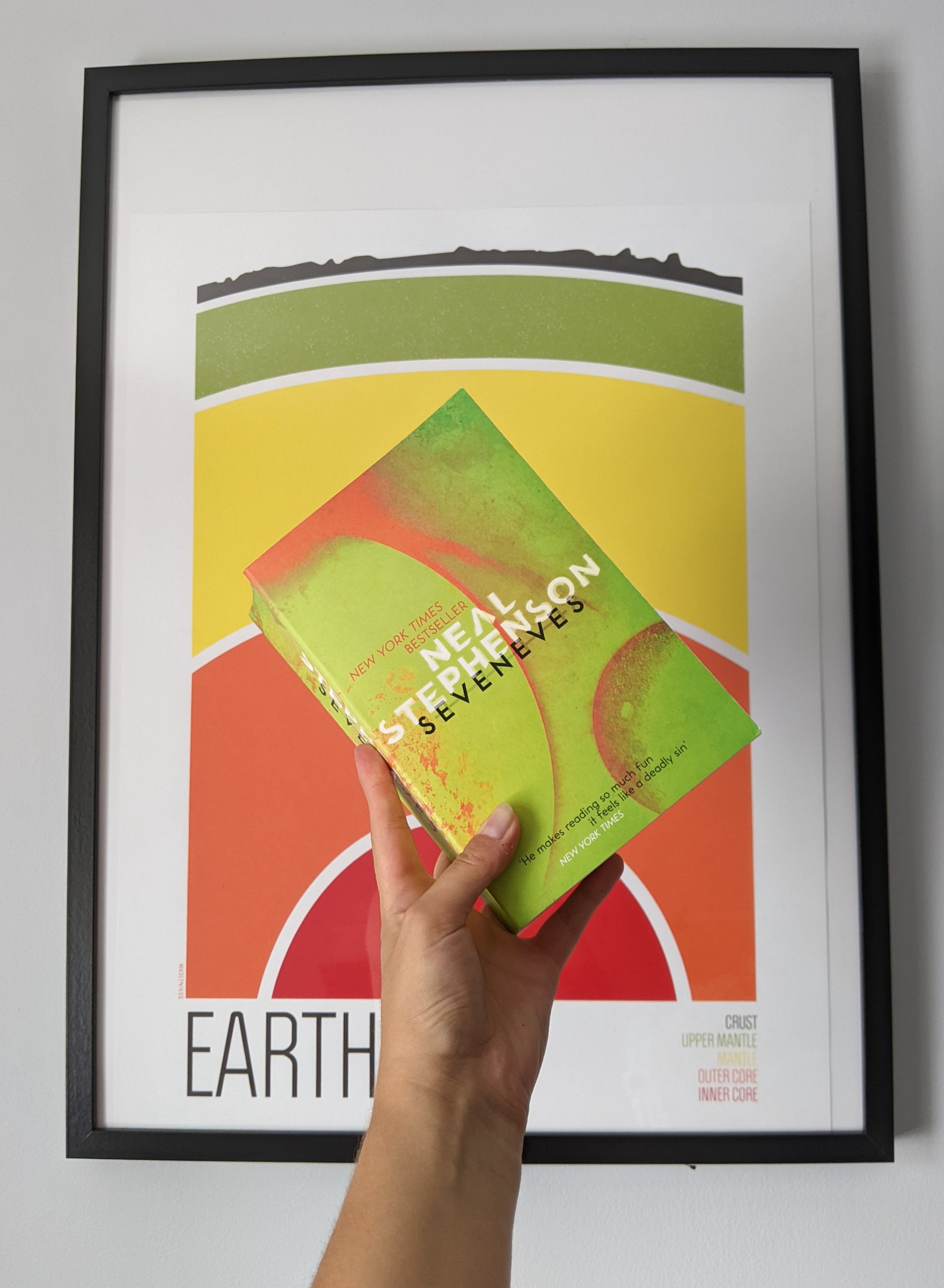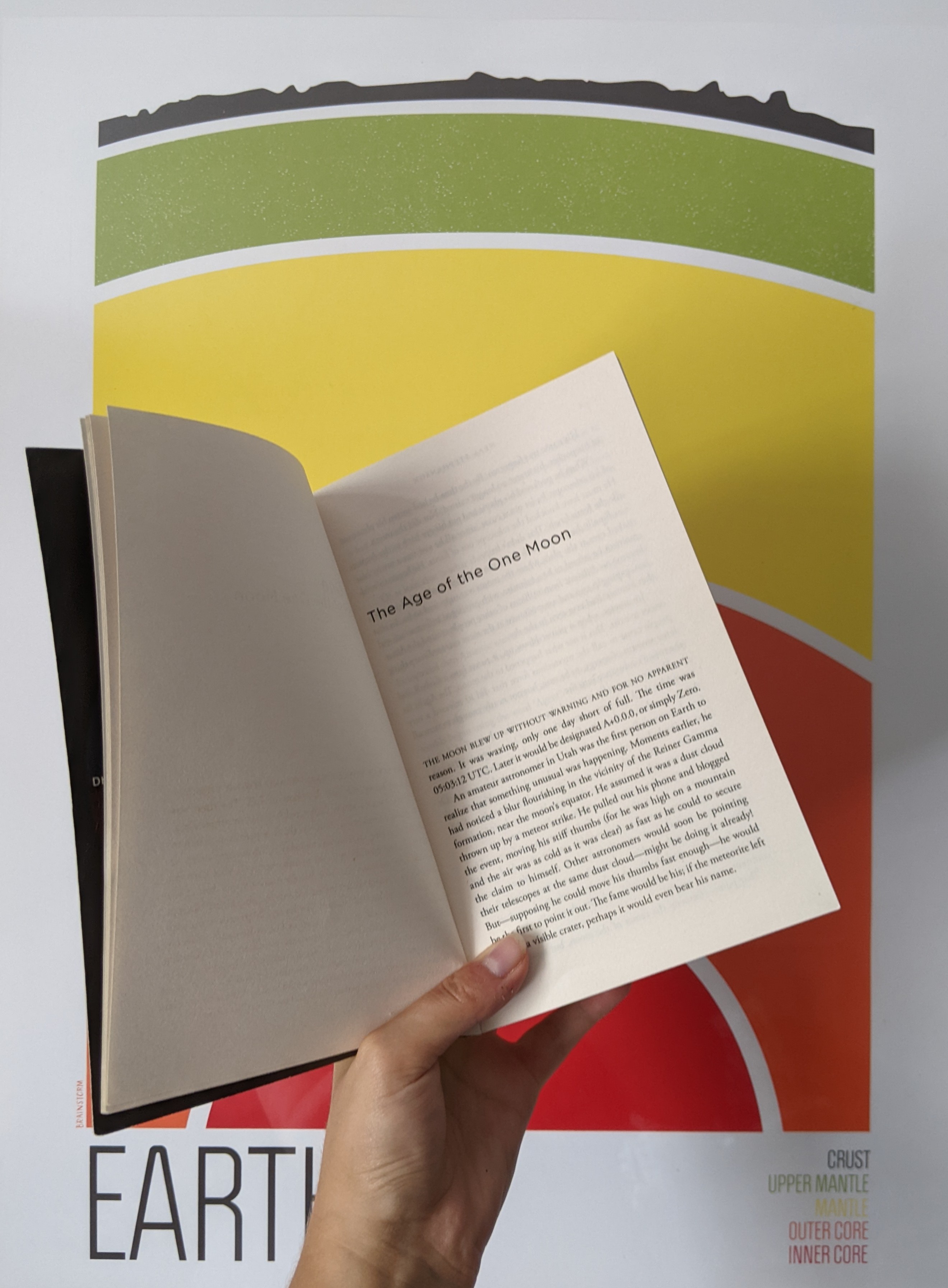Seveneves
by Neal Stephenson

I first read
Having reread it recently, this is what I think the novel was best adept at portraying: this feeling of being far removed from an impending doom as an individual, until it comes around that blind corner of time and crams reality down your throat. How everyone else also only ever receives realities in small doses, so you’re watching society react and try to move on, simultaneously.
Warning:
what follows is a review containing very mild plot spoilers. If you wish to read the book knowing no more than what is on the front cover, do not proceed. If you wish to read the book knowing slightly more than the dust jacket cover, please proceed.
This book examines what would happen if an astronomical body hit the moon, thus shattering it and sending pieces hurtling towards the Earth in an apocalyptic event sure to end humanity. I almost wish the author had spent more time on what the Earthlings down below were feeling as they watched a small, elite portion of humankind try to survive up above in their satellite. I found the descriptions of their lives the most moving: how governments rationed out euthanasia, how they encouraged their citizens to keep interacting with nature and preserving cultural heritage, how subsections of those chosen to survive succumbed to extremism despite proven scientific knowledge being there for them.
Fighting isn’t about knowing how. It’s about deciding to.
—Neal Stephenson,
Overall, I think the author was able to deftly identify the types of personalities present in society when such societal breakdown is evident, and also balanced optimism and pessimism appropriately. If you’re inclined to wonder how on earth someone could ignore blatant evidence and opt instead for denial of fact, beyond the rote, “they’re ignorant”, I think this book provides an even-handed understanding of the very human mechanisms that could drive someone towards this (if slightly simplistic, at times). Additionally, cultural characterisations, and what it feels like to be a women in STEM, were fantastic. The characters and their growth throughout, as well interactions with each other in a time of crisis, is what kept this book a page-turner for me.
And yet people went on thinking this way, kind of in the way that someone who has just been diagnosed with a terminal illness will go on getting up and going to work every morning, not so much out of habit as because the knowledge of impending doom makes them wish to assert an identity.
—Neal Stephenson,
Where I think the book could be improved, is in the technical. I.e.: less of it, please. This could be due to the fact that this area of STEM is tangentially, if not outright at times, related to my current and past degrees (and I read mainly for escapism), but I found the technical descriptions slightly too long-winded. They were well-explained though, and would be valuable for any reader not particularly educated in space science that wished to truly understand the mechanics behind the storytelling (even if I personally prefer to show, don’t tell as a reader). If you’re not interested, skimming these sections still can provide you with the basics before you return to the main meat of the story. Whilst for the most part the pacing and tone was well done—never was I stuck in a perspective where I felt it went on far too long, a rarity!—the inclusion of these technical descriptions at times slowed down the thrilling, edge-of-your-seat moments. The very last few chapters of the story I admit to also somewhat semi reading upon rereading it; it was too hard science-fiction for me, and I don’t think added to the story: leaving to the imagination what areas of humanity survived, and merely alluding to the future humanity was left to, would have been more than enough to convey the messages of the novel.

Read this and enjoyed it?
- Watch Don’t Look Up, for the exact opposite of what could occur, but for a (I think similarly accurate) analysis of human behaviour when faced with the impossible.
- Let me know what you thought and your analysis, and let’s spark a conversation!